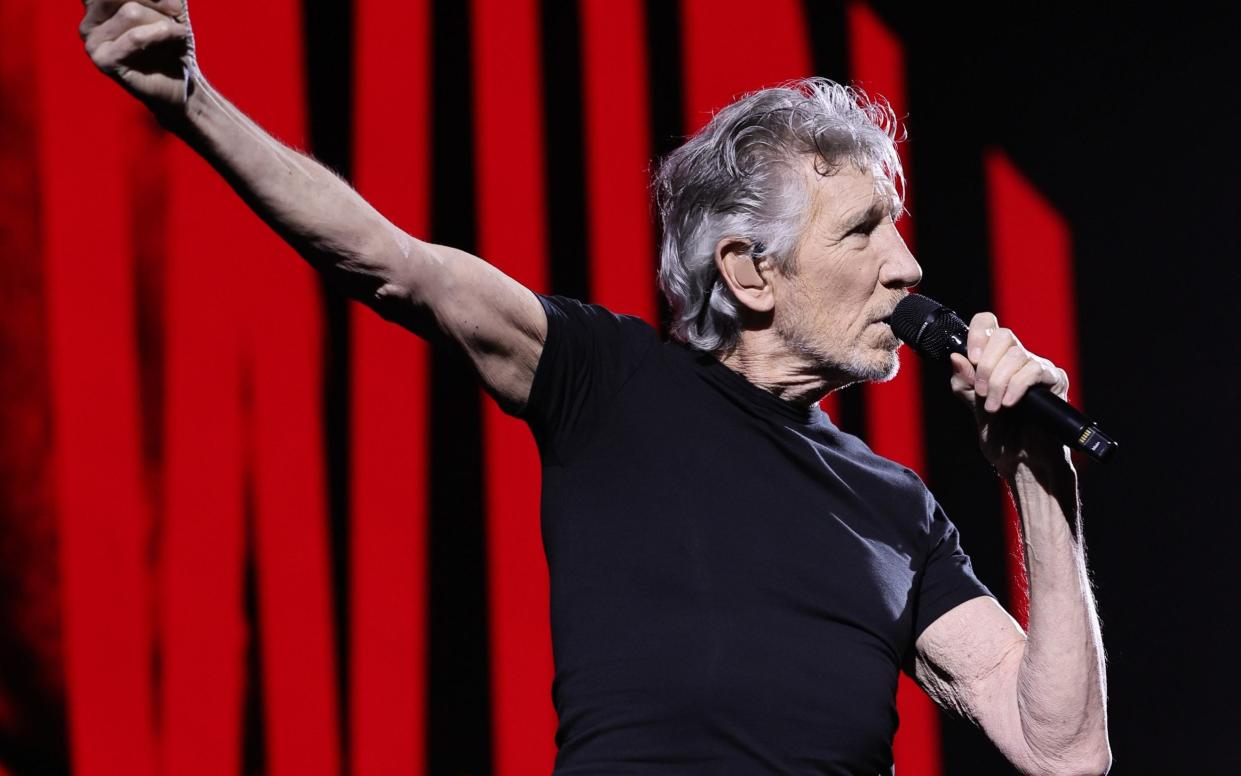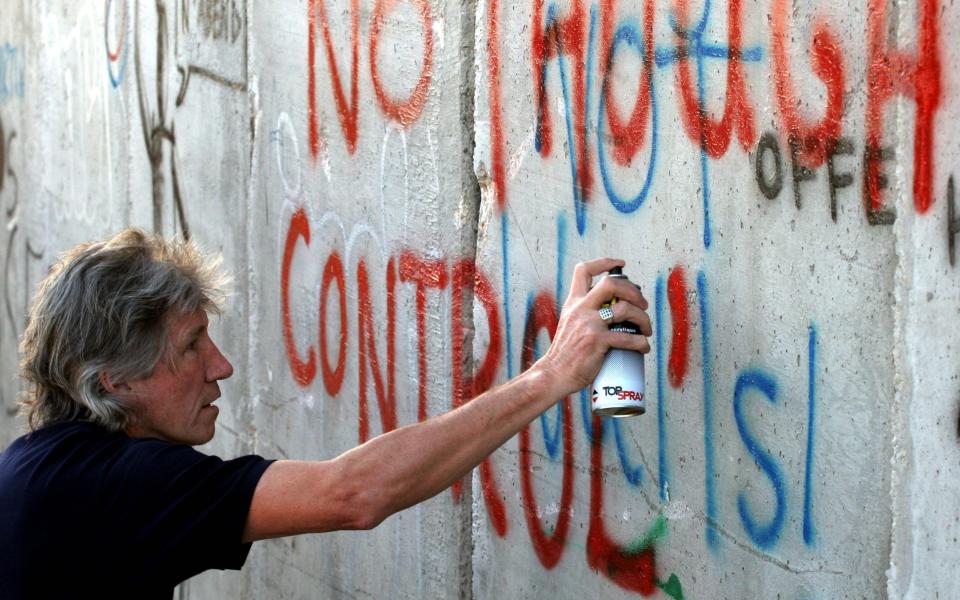He’s rich, talented and 79 – why is Roger Waters still so angry?

- Oops!Something went wrong.Please try again later.
What's eating Roger Waters? No stranger to controversy, the veteran rock star has talked himself into trouble again. Planned concerts in Poland have been cancelled amid outrage over the Pink Floyd co-founder’s stance on the war in Ukraine.
Krakow City Councillors scheduled a vote this week to declare Waters persona non grata, ahead of two shows in April next year at the 22,000 capacity Tauron Arena. Local politician Lukas Wantuch urged fans to boycott the concerts. Waters' response was a Facebook post, paraphrasing Floyd’s Another Brick in the Wall: “Hey Lukas Wantuch, leave them kids alone.” The concerts subsequently vanished from the touring schedule, with Waters' management accusing Polish politicians of draconian censorship.
To be fair, any old Polish rockers in possession of tickets would have been in little doubt about Waters' political position. He has previously proclaimed that the Russian invasion was a response to NATO provocations whilst condemning western support for Ukraine’s military. As part of his This Is Not a Drill show currently touring the US, a picture of President Joe Biden is projected onstage labelled War Criminal. This month, Waters published an open letter to Ukraine’s first lady, Olena Zelenska, blaming “extreme nationalists” in Ukraine for the conflict, and questioning her husband President Zelensky’s desire for peace.
The real question for music fans is why Waters is embroiled in this argument at all? For decades now, the multimillionaire superstar has seemed determined to forge a reputation as the angriest man in rock. He has been accused of antisemitism for his vigorous support of Palestine. He has picked fights with corporations, criticised the views of other rock stars, spoken at rallies for the release of WikiLeaks founder Julian Assange, proclaimed Jeremy Corbyn “a beacon of hope” and defended China’s historical claims over Taiwan. Look for the controversial side of a hot political argument, and that’s where you can usually find him.
At 79, you might have thought Waters would have mellowed, but not a bit of it. “Of course I’m belligerent!” he once roared at me in an interview in New York in 2015. In his view, there is plenty to be belligerent about. He talked to me about the rush to war with Iraq in 2003, recalling a dinner with American news correspondents. “I was the only dissenting voice at the table. They laughed at me if I said anything, told me I didn’t understand, dismissed my silly ‘all you need is love’ idealism. But I was right and they were wrong. And I’m right about a whole bunch of things that are going on now.”
An absolute conviction in his own truth lies at the core of Waters personality. Perhaps it has been key to his psychological survival. His father, a schoolteacher and communist, was killed at the Battle of Anzio in Italy in 1944 when Waters was five months old, and it is not hard to join the dots to Waters own fierce peacenik activism. A lifelong socialist, he genuinely believes in a capitalist machine dedicated to “maintaining a perpetual state of war.”
Aged 15, Waters was chairman of the Cambridge youth branch of the Campaign for Nuclear Disarmament (CND), and still talks in terms of “the final conflagration.” Yet as a musician who came to prominence with arguably the preeminent psychedelic band of the hippy era, Waters insists his ethos is driven by a “transcendental” love for the human race. Waters believes he is acting for the common good. “Can you imagine, if it ever happens? Why didn’t we do something about it? Why did we let them get away with it?”

Waters is a fascinating man to interview, charming, charismatic and eloquent, with an abrasive intelligence that revels in argument and a glaring smile that mollifies incendiary comments. Yet reduced to black and white print, he can sound like a grouchy provocateur. He still clearly carries wounds from his departure from Pink Floyd in 1985, when he was outraged that his bandmates elected to continue without him.
He seems congenitally unable to resist dropping spiky comments about guitarist David Gilmour into every interview. “I would suggest that there is no band in the world where some of the animals aren’t more equal than others,” he has rather imperiously declared. “Dave and I are not mates, we never were, and I doubt we ever will be.”
Pink Floyd drummer Nick Mason remains close to both his surviving former bandmates and is diplomatic about Waters provocations. “It has to do with some rather entrenched views about what’s important,” he told me in 2020. “Roger doesn’t have the same respect for guitar playing and singing that he does for writing.” Gilmour was slightly more succinct in 2001 when we discussed why they would never work together again. “Because he’s a prick.”

The Krakow City Council would probably take Gilmour’s side. But let us not discount that Waters' contrariness has driven his art, helping give birth to the anti-establishment dreams of The Dark Side of the Moon, idealistic loss of Wish You Were Here and dystopian paranoia of The Wall, a double concept album about how hard it is to be a filthy rich and famous rock star. “There are a huge amount of bands out there who have writers who are f______ useless,” he once told me. “Frankly most rock and roll is awful.”
Waters, however, certainly excludes himself from that assessment. Like a lot of idealists, he has a conviction that his own insights trump the evidence, and the more critics clamour that he is wrong, the more he will be convinced he is right. Being declared unwelcome in Poland… all in all, it’s just another brick in the wall that Waters has spent his life building against the outside world.

